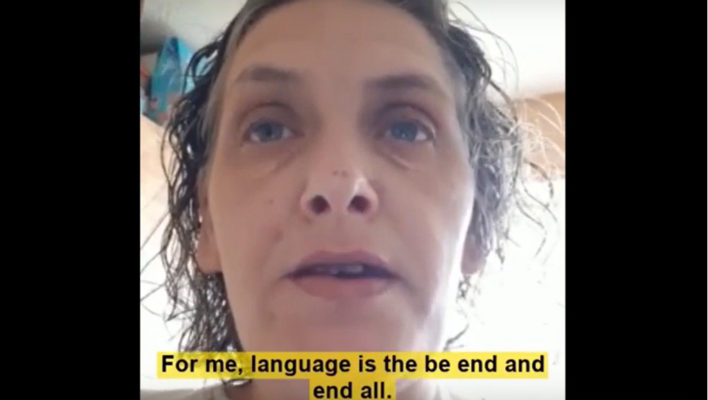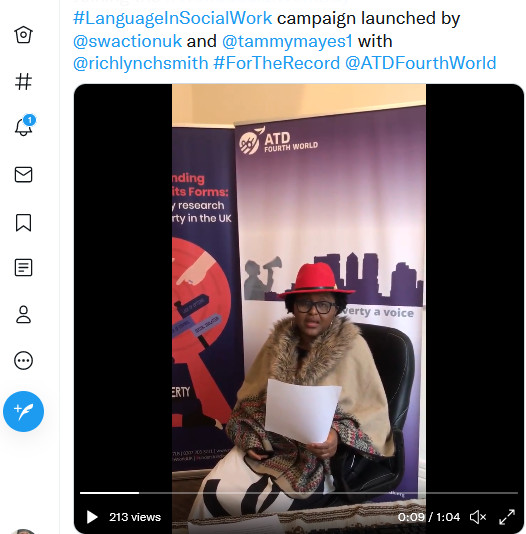#Not A Service User: the Language in Social Work Campaign

“Life is about building people up, not tearing people down, and language is a big part of that. The language we use in relationships should not dehumanise people.”
– Tammy Mayes, ATD parent activist and Chair of the Parents, Families and Allies Network
This conviction of Tammy’s led her to launch a campaign to challenge the jargon used by social workers, together with social worker Jason Barnes. One example of this jargon is the fact that social workers commonly refer to the individuals and families they work with as “service users”. Tammy says this term makes people feel:
“demeaned, not important, and not valued. I heard that term for years, but I’m not and never have been a ‘service user’. I didn’t ask for social services to get involved in my life. It’s not a service I ‘opted’ to use.”
This is why Tammy, Jason, and the Social Work Action Group (@swactionuk) started the hashtags #NotAServiceUser and #ForTheRecord.
They won’t come if they see nasty words written
ATD activist Lareine Kenmogne joined their campaign with this tweet, in which she said:

“The words that social workers write down in reports impact parents and how they are seen. Don’t exaggerate for effect.
“Words like ‘shabbily dressed’ and ‘grubby’ really hurt.
“They stay with people for years and years. Parents are worried that is how others see them. Some parents have children who were forcibly adopted by the local authority. These parents worry that when their children are older, their children won’t come and look for them if they look into their social service files and see nasty words in the reports. Social workers should be really careful when they write reports because parents in poverty are just trying our best.”
Social workers use the term “contact” to refer to visits between family members who have been separated by social services. Tammy proposes that this be called “family time” because “you’re building a relationship with children”. Another term they challenge is “LAC” as a way of referring to a “looked-after child“. In this anonymised poem, “I LAC Nothing“, the author says:
“There are many different ways that people try defining me. […]
I changed to LAC, no going back, the pain cut like a knife. […]
I am not just a LAC child or a care-leaver to be.
I have a name, a history, I have a family.
I’ve made it through the trauma and I’m never going back.
So I ask you now to tell me please: What is it that I lack?”.
Words that generate belonging
Social worker Tim Fisher talks about “the gift of recognition that language can give us”, for example “I had a nice moment when somebody said that they see me, and I felt seen. Language can recognise the other person.
“Some labels can be really corrosive inhibitors of progress and be very damaging and harmful. Other words can generate belonging”.
Lived-experience activists in the Social Rights Alliance agree about the importance of language. In a new video, they say: “The key issue is language. Sometimes we don’t have the right language to say ‘my rights are being abused’. […] ‘Hard to reach’ actually means ‘easy to ignore’ and ‘barriers to participation’ would be better termed ‘hate practices’. […] Not using the ‘right’ language is totally okay [when we’re] able to have the conversations”.
To learn more about the language in social work campaign, see:
- “The Language of Social Work” in Social Work News, Spring 2021;
- this video co-produced by parents, care-experienced people, practitioners and academics;
- and this webinar, “Barriers to Relationships in Child Welfare: Why Language Matters“, co-hosted by the Parents, Families and Allies Network, the International Parent Advocacy Network, and the Social Work Action Group.

